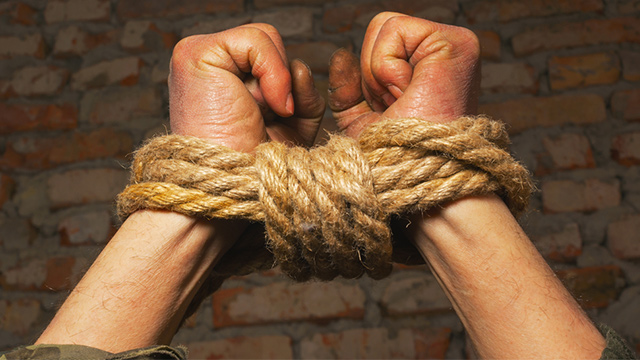SUMMARY
This is AI generated summarization, which may have errors. For context, always refer to the full article.

MANILA, Philippines – Five people accused of human trafficking in two notorious bars in Cebu has been convicted after more than 3 years of detainment.
According to a report by the International Justice Mission (IJM), 3 managers working at Red Lips Bikini Bar in Cebu City and two at Cheers Videoke Bar in Bogo City were charged guilty of Qualified Trafficking in Persons for trading minors for sex.
They were sentenced to life imprisonment and fined P2 million last week.
The court decision sends a strong message to bar owners to “get out of the illicit business of the commercial sexual exploitation of children or go to jail,” said IJM Cebu Deputy Field Office Director Atty. John Tanagho.
“No one is above the law, not bar managers and not bar owners,” he added.
Caught in sting
In 2010, the Philippine National Police’s (PNP) Anti-Human Trafficking Task Force in Region 7 arrested Joseph Charles and Hilda Leveque in a sting operation at Cheers Videoke Bar.
Two years later, the National Bureau of Investigation (NBI) caught Janeth Yosores Bughao, Genevieve Dawa Badiang and Sheila Ohao Dedicatoria after an entrapment operation at the Red Lips Bikini Bar located along a famous red light district in Cebu City.
The two raids rescued 32 women, mostly minors.
“For those who continue to commit the crime of sex trafficking of children, these convictions prove that they risk their lives every time they exploit a child. The prospect of earning money by selling minors for sex no longer outweighs the risk of punishment,” IJM wrote in its report.
“Traffickers of children will be arrested, prosecuted, convicted, and sentenced to the penalty they deserve.”
Conviction in Manila
Also last week, another person detained for human trafficking was also charged guilty in Manila.
Prosecution evidence has confirmed Evengeline De Dios guilty of selling women for sex for P700.
De Dios was caught trafficking two adult women and 3 minors under a bridge in Riverbanks Park, Marikina City in 2013.
The court also sentenced her with life imprisonment, along with P2 million-peso fine.
Victims relieved
Hearing about the cases’ decision, the victims expressed relief knowing that the perpetrators will no longer be able to victimize other people.
“I’m happy that the promulgation brought closure to that chapter of my life. I really have peace of mind now and can focus on my studies and not have to worry about the next hearing. I can move on,” one victim said.
While another, although grateful, seeks beyond imprisonment to mitigate the problem.
“I’m really happy to know about it. But my happiness will be completed when I know that the bar will be completely closed.”
Trafficking in the Philippines
Republic Act 9208 or the Anti-Trafficking in Persons Act of 2003 states it is illegal to “recruit, transport, transfer; harbor, provide, or receive a person by any means, including those done under the pretext of domestic or overseas employment or training or apprenticeship, for the purpose of prostitution, pornography, sexual exploitation, forced labor, slavery, involuntary servitude or debt bondage.”
Convictions relating to human trafficking have been increasing for the past years, with the spike mostly happening during the Aquino administration.
As of September this year, 200 persons have been convicted since July 2010. This amounts to more than 85 percent of the total number of conviction in the past 10 years.
The US State Department the US State Department, in its Trafficking in Persons (TIP) report released in July, lauded the government’s effort to eliminate trafficking in the country.
However, it noted the government remains at Tier 2, still not fully complying “the minimum standards for the elimination of trafficking.”
The country has remained in Tier 2 for the past four years. (READ: Trafficking in Persons report: PH still under Tier 2)
“Forced labor and sex trafficking of men, women, and children within the country remains a significant problem,” the State Department said, noting Philippines continues to be a source country for trafficked people. – Rappler.com
Add a comment
How does this make you feel?
There are no comments yet. Add your comment to start the conversation.